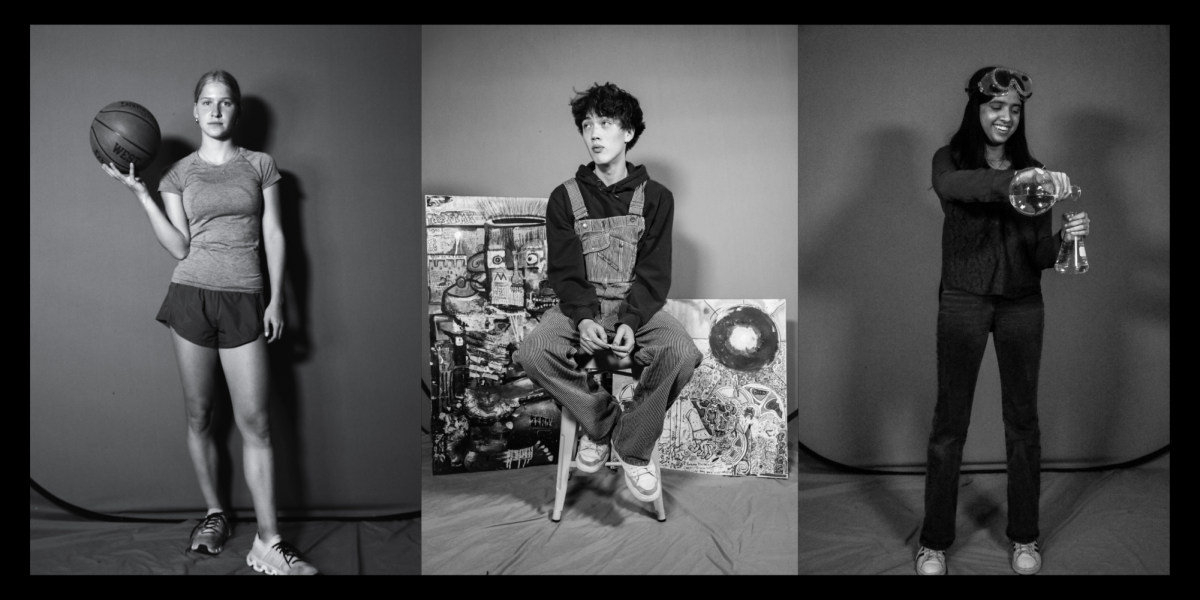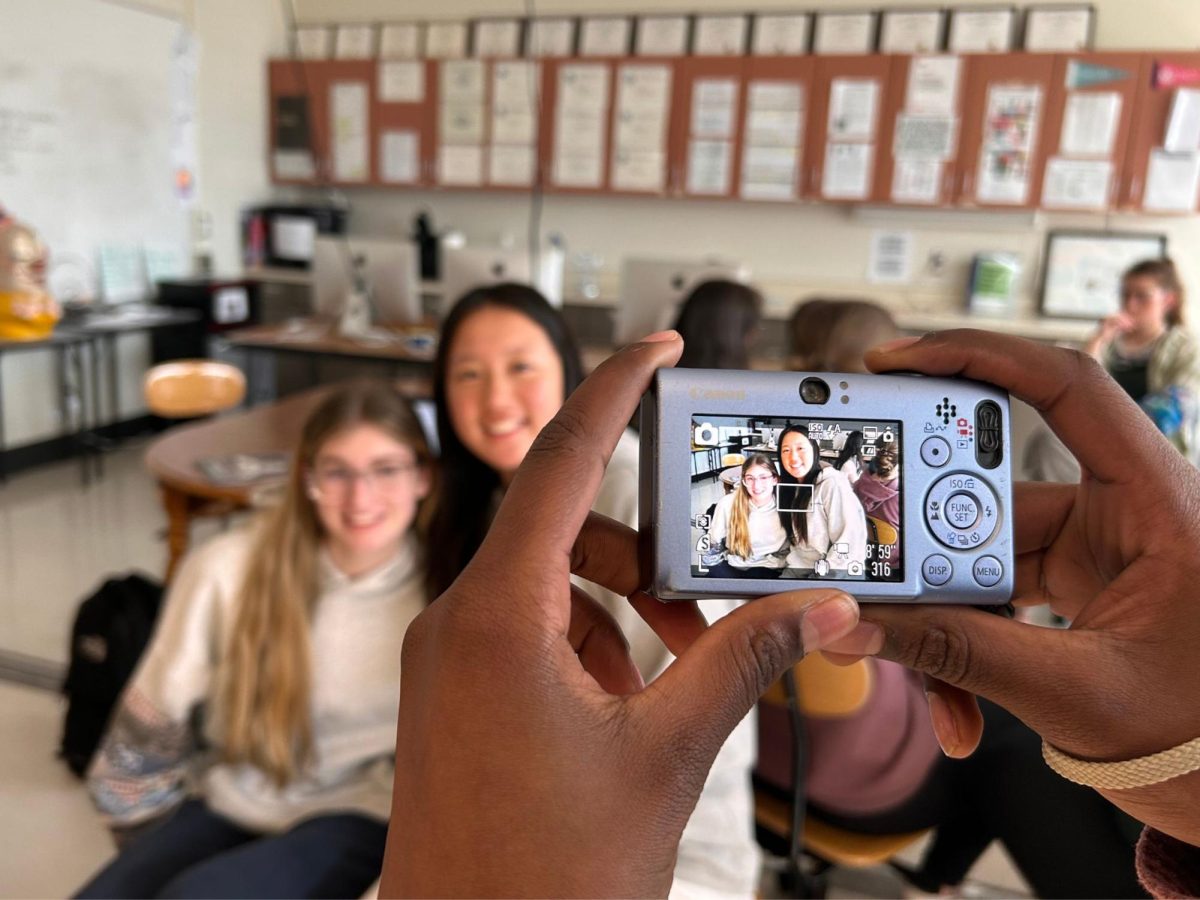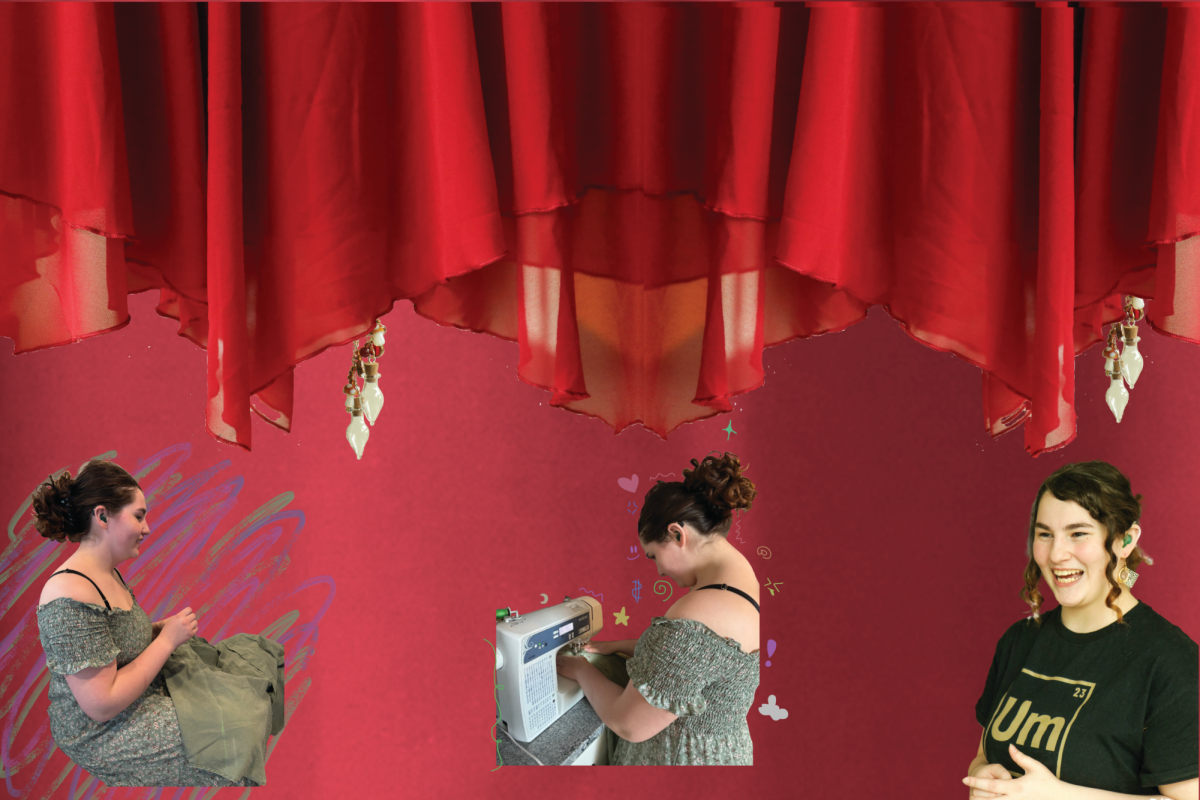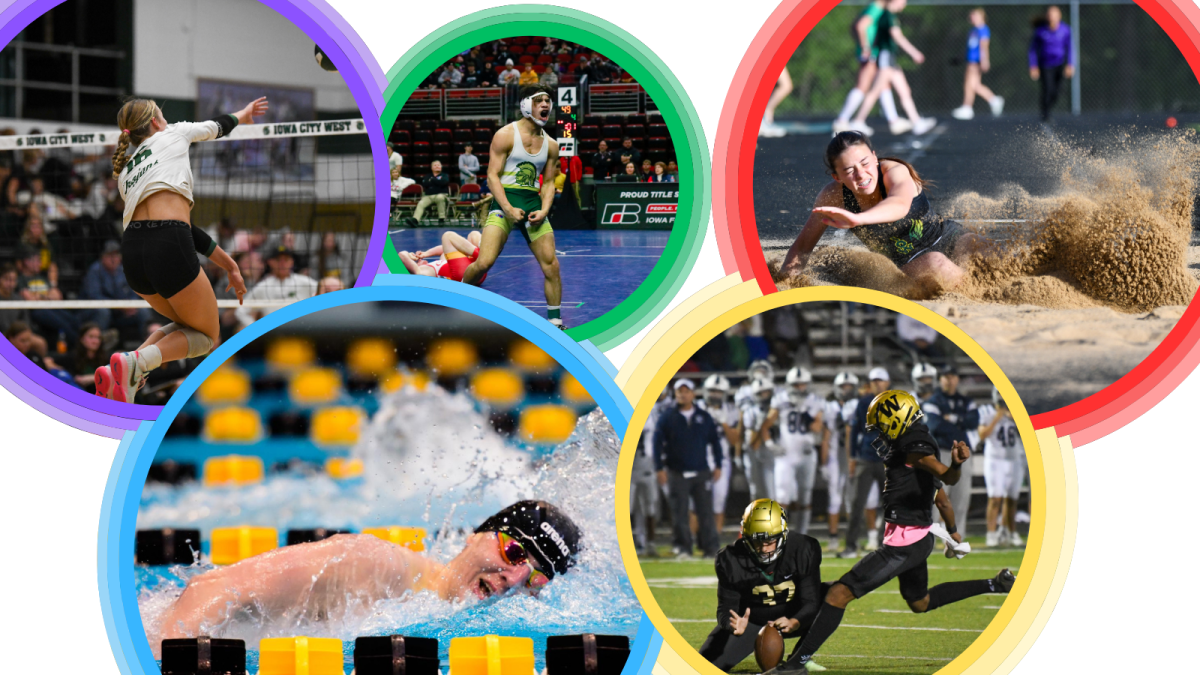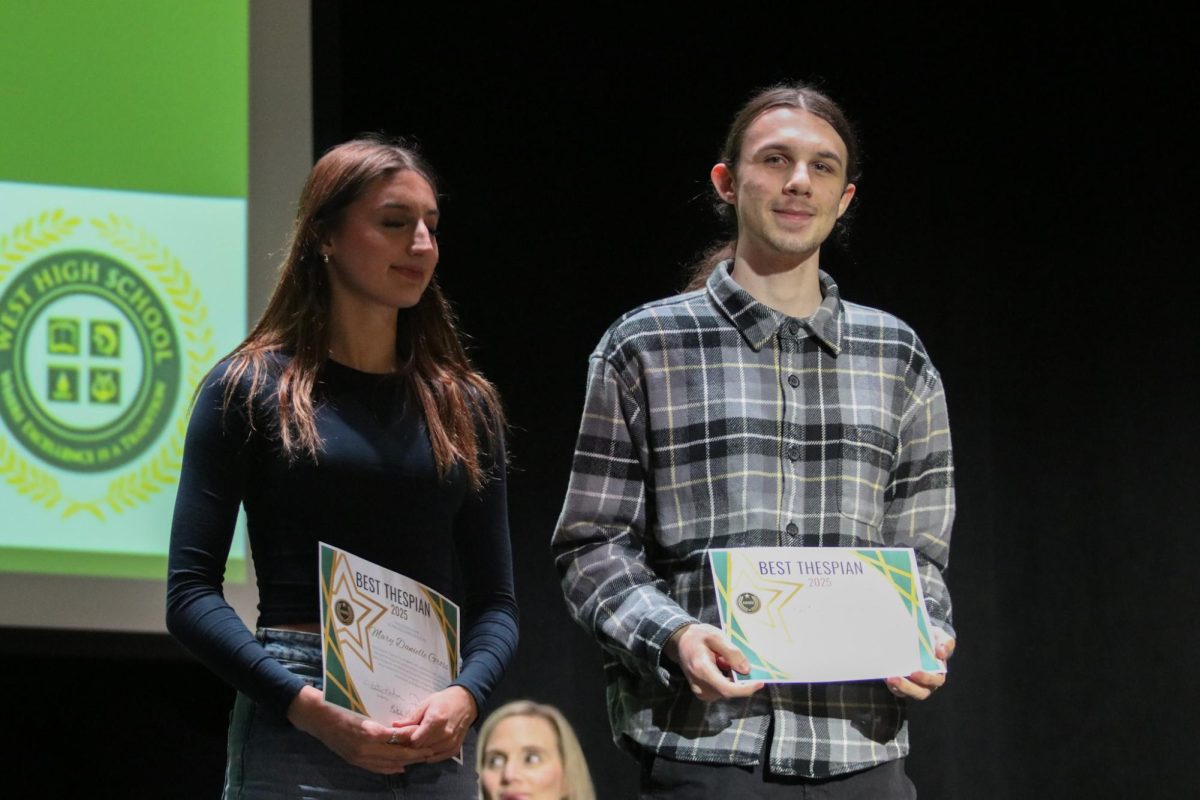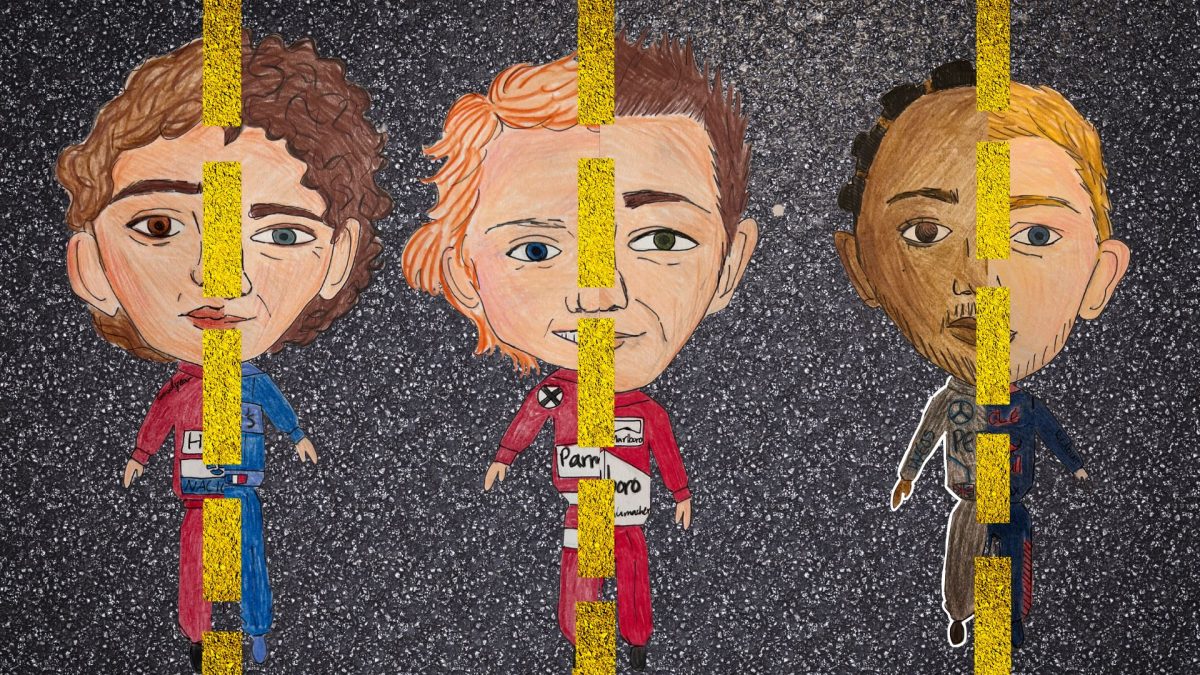For years, sports have played a pivotal role in American culture. Especially for teens, sports create an environment that develops unity and pride. However, these experiences are not limited to traditional sports teams; rather, esports, short for electronic sports, fosters similar values. Esports involves teams competing in single and multiplayer video games. In the last five years, esports’ popularity has increased significantly among both regular viewers and people who only watch occasionally. Since 2020, esports viewership has gone from just over 400 million viewers to over 600 million viewers projected for 2025.
Responding to the widespread growth of esports, the Iowa High School Esports Association (IHSEA) established its first official season in 2020. IHSEA’s mission is to create a competitive environment for students to participate in esports programs. Although there are a variety of games that students compete in across the fall, winter and spring seasons, West’s esports team participates in two: Super Smash Bros. in the fall and Mario Kart in the spring.
West’s head librarian Jill Hofmockel started the esports team in 2020. At the time, they competed in Overwatch and Rocket League. Chemistry teacher Jeff Conner began coaching West’s esports team this fall, hoping to help connect students who enjoy video games.
“As a state, the Iowa High School Esports Association has been formed to try to give these students a space to compete. A lot of it wouldn’t have happened if there weren’t these big esports players playing nationally and internationally,” Conner said.
Sawyer Smith ’25, a member of the Super Smash Bros. team that competed in the fall, noticed that the rising popularity has made esports more mainstream.
“[Esports is important] because it is becoming more serious now, so you can be a lot more competitive than usual and actually have it go somewhere,” Smith said.
West’s esports team captain Emma Semler ’24, first joined her esports team in Oklahoma. After moving to Iowa City, Semler joined West’s team in hopes of finding a similar community to her previous school. Despite her initial worries about joining West’s team, Semler has since developed strong bonds with her teammates.
“At first I was really apprehensive because these people already really all knew each other from [the] Smash Bros [season],” Semler said. “I thought it was going to be really clique-y and I felt like I wouldn’t belong, especially since I was one of the only girls that was there at the time. But it didn’t turn out that way. We found a lot of common ground and I made friends that I never thought I would have made.”
Every week, the team meets in West’s Library on Mondays to sharpen their skills and then takes Tuesdays to compete against other schools. These practices allow team members to practice specific techniques that Conner believes are important to competitive gaming.
“There’s a difference between playing these games casually versus playing them competitively. I don’t think if you’re just picking up a game with your friends on the weekends that you’re thinking about the technical skills,” Conner said. “A lot of these games actually do get highly technical. For instance, Emma [Semler] was talking about how on Mario Kart, picking up the coins actually makes you go faster. As somebody who’s played Mario Kart for a very long time, [I] had no idea that that was a thing.”
Smith notes that the technical aspects of esports are what drives him to compete.
“I really like technical games. I don’t need to think about it. It’s more of me literally doing it than playing chess and strategizing,” Smith said. “You do have to strategize, but it’s more reaction based, specifically Super Smash Bros. It’s all in the moment.”
Though he doesn’t consider himself a highly skilled gamer, Conner believes he serves an important role as a coach.
“I would say with any set of skills, even if you are not somebody who’s super proficient at it, you can still help young people try and organize their thoughts, practices and methods, in terms of improving themselves on things as a generalized set of skills,” Conner said.
One of the ways Semler prepares players for their competitions is by organizing workshops to work on specific techniques
“When I was running practices in our offseason to keep us sharp and get ready for Mario Kart, there were times I would do a PowerPoint presentation, like talking about a certain skill that I thought we should work on,” Semler said. “After that, we’d apply the skills that we discussed during the little mini lesson. Those were some of my proudest moments when I felt like I was able to teach my peers something new and see them execute it.”
To help the players improve their skills, Conner leads practices that place teammates as opponents. Though he finds success in this strategy, Conner notes that there are sometimes unintended consequences.
“The club members train by competing against each other, which is sometimes counteractive to trying to build a strong team, because they spend practices competing against each other, then you need them to be rooting each other on and happy [during competitions],” Conner said. “That’s sort of a delicate thing to balance, although they do it pretty well.”
Semler notes that one of the esports team’s strengths—collaboration—is often unexpected by people outside the club.
“When you think of people playing video games [you think], they’re sitting alone in their chairs. Like if you’re playing Call of Duty, [you’re] just shooting people and getting mad when you lose, but it requires a lot more cooperation than you’d think,” Semler said.
Conner finds he is able to provide club members with a supportive and inclusive space for personal growth.
“Interpersonal skills and making sure everybody feels welcomed is a really important value of the team. One way [esports] is a little bit different than a traditional sports team is that we don’t turn kids away. If you come and you want to play, then you can play. You might not be playing on the varsity roster very many times or at all throughout the season, but you can come and practice and get better,” Conner said.
Semler notes that esports is difficult to compare to traditional sports.
“It’s a very interesting environment, because yes, it’s a real sports team. And it’s like an athletic team, but also, it’s a strange fusion between a sport and a club. I don’t know how to describe it. It’s just something else,” Semler said.
One of the ways Semler distinguishes esports from other sports is the communication required while competing.
“[Practice] gets very loud, rambunctious and very high energy. And honestly, not always staying on task, but I feel like it’s a more relaxed environment than sports,” Semler said. “Since we’re not using our bodies so much and we’re using our minds, it gives us a lot of time to really communicate with each other. Especially in Mario Kart, you really need to be able to communicate effectively what’s going on around you. That brings us closer and [makes us] able to communicate with each other better and feel more tight knit.”
Despite gaming’s rise in popularity, Semler notes that some people may have misconceptions about what characterizes an esports team.
“People think that [gamers] don’t take care of themselves. They have all these stereotypes that they’ve made, like, ‘Oh, they don’t do anything.’ But there’s a lot of esports kids who are athletes or participate in music and theater,” Semler said. “[Esports is] just as diverse of an environment as any other activity in the school. And that could be surprising to others, like, ‘Oh, wow, it’s not just a bunch of nerds.’”
Smith agrees, noting that esports attracts a variety of students.
“Everybody there is different; there are people who are kind of shy, and then people [who] are really passionate about their knowledge,” Smith said.
As a result of esports’ diversity, Conner believes many people can find a place in the club.
“I would recommend [esports club] to people who obviously enjoy the games. I think that a lot of people who are gamers tend to be sort of loners, and I think it’s a good opportunity to meet people who are interested in something that you’re interested in,” Conner said. “You might not get to practice in an athletic sort of competition, [but esports] gives some students an opportunity to do what they wouldn’t otherwise be able to. If you’re somebody who hasn’t had a chance to compete a lot, but you like the idea of being involved in a competition and you’re good at games, [esports] is a good opportunity for you.”
Smith agrees, noting that the esports club not only creates an opportunity to compete, but also an accessible avenue for reaching goals.
“When you play on the team, it’s a lot more structured; you can use your skills to go towards a goal … because esports is already set up with all the schools and tournaments, like state,” Smith said.
Semler also believes that more people should get involved with esports because it is a community that brings people with common interests together.
“For a lot of people, one of their hobbies is video games, whether it be Minecraft or Roblox or Candy Crush, even,” Semler said. “There are a lot of people in esports who dip their toes in all sorts of games, and that’s a great way to find a common ground with somebody and start a friendship.”
However, Semler has noticed that many people who may be interested are unaware that West has an esports team.
“I don’t feel like we get much of a spotlight… Because there have been multiple situations in which I was talking to somebody in one of my classes like, ‘Oh, I’m going to esports after school today,’ and they’re like, ‘We have esports?’ I was like, ‘Yeah, you want to come see?’ And then they start doing that regularly, become a very heavily involved member and stick around for the rest of their high school career,” Semler said. “It’s sad because I think about how many people don’t get to experience [esports] because they didn’t meet one of the few of us that are in it.”
For those who do join esports, Conner believes they find a positive environment to continue to grow.
“Some of these students say [esports] is their favorite part of school. The fact that I can help to create an environment where these students feel valued and have confidence in what they’re doing, it means a lot,” Conner said. “I’m really glad to be a part of that, and I’m glad this group exists. I hope they will continue to exist and that these students will continue to have a place in it.”




